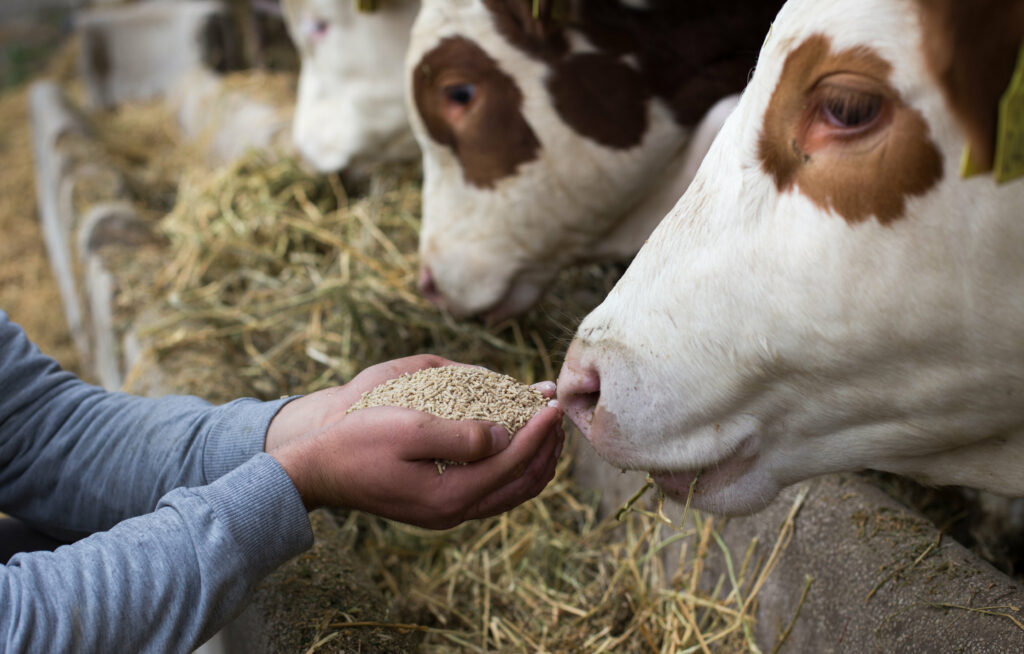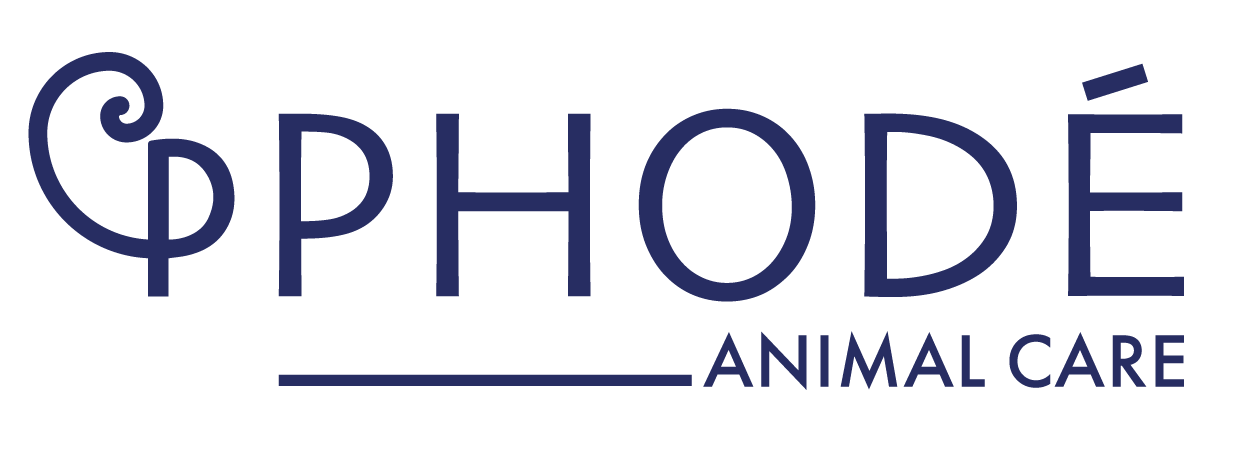Feeds are formulated on the basis of nutritional balance. Performance is based on: genetics, farm management, …, and on the feed intake of balanced feeds. We can all agree: to be healthy, to produce well, a cow or a pig needs a feed that perfectly meets its needs and to eat it well. Just like athletes, who strive to have a balanced and adapted food, as the diet is determinant for their future performance.
When it comes to production animals, we cannot rely only on the nutritional balance of rations or feeds for good performance. Indeed, a balanced feed is in some situations not well eaten and therefore cannot provide all its nutritional balance, thus impacting performance. Yes, the ingestion of feed by an animal is a voluntary act, it cannot be forced. So, what is the obstacle between the balanced feed and the feed intake? The animal and its behaviour.

The efficiency of a balanced feed depends on a good feed intake!
Feeding behavior of animals
“Feed intake” is is the key to success in livestock farming, so that the feed, perfectly formulated by the manufacturers, delivers all the nutrients required by the animal and its production. Without voluntary feed intake by the animals, the feed cannot be effective.
External parameters to the feed can influence the animal’s feeding behavior – heat stress, density, physiological stage, weaning, etc. – and intern parameters to the feed as well. Two major factors, directly related to the feed, have an impact on voluntary feed intake by the animal:
- Physical aspect of the feed: hardness and size of the pellets, absence of fines, etc. These parameters are linked to the technological manufacturing process and are perfectly mastered by feed manufacturers.
- Feed palatability: odors and tastes depend on the raw materials used. These parameters are managed thanks to a specific aromatic approach: it is the science of olfaction, and consequently of taste, the role of these two senses being inseparable.
A poorly ingested balanced feed intake is an expensive feed
Animals have the physiology to detect smells and tastes very accurately (even more than humans), and to identify the different elements of a ration. Coupled with their neophobia, this can lead to unfavorable feeding behavior for the farmer. Although precisely formulated to meet the animal’s nutritional needs, the final result of the feed, in terms of taste and smell, does not necessarily meet the animals’ expectations. These super-gifted senses are sensitive to the pleasures of taste and smell! As a result, if they don’t like the food, the animals will reduce their feed intake:
- A rejected taste. Certain compounds essential to the balance of a ration or feed sometimes taste bad. A mineral that is not ingested, a feed that is sorted out or rejected… consequences can very quickly be seen in the animal’s health and performance.
- Feed transitions. As we all know, feed transitions periods are delicate: in addition to the limitation of milk feed and the immaturity of organs, there is a drop in feed intake between two types of feed, which impact even more the overall performance.
- Formula variations. Necessary to maintain a quality feed at a reasonable cost, these are detected by the animals and can cause drops in intake.
No matter how well balanced a feed is, if it is poorly or not eaten by the animals, it becomes a costly and unvalued expense for the farmer.
Palatability tips the scales
Feed palatability is something to be worked on and this is a job in its own right. These animals, which have a nose and a sense of taste, are looking, of course, at the physical profile of the feed, but also at its aromatic profile, the key to palatability.
Palatability is essential for voluntary feed intake by the animals, and is mainly worked on with flavourings. Knowing the olfactory and gustatory physiology of the animals, the aromatic molecules to which they respond positively, is essential to propose the adapted flavourings securing the feed intake and allowing the animals to benefit from the whole nutritional balance they need. For good performance!












